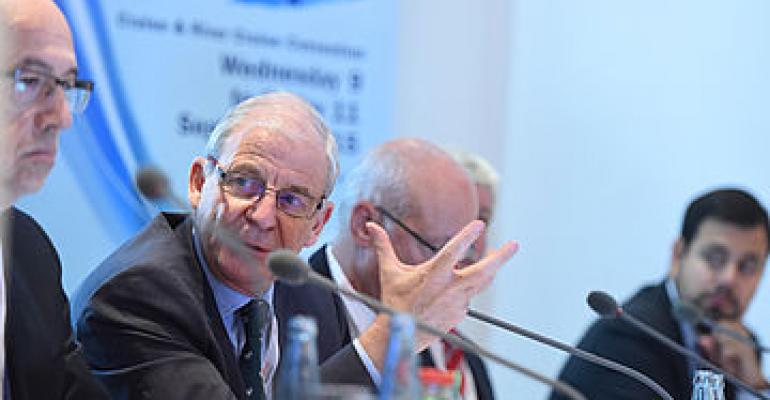Moderated by Esther Mallach, Partner, Arnecke Sibeth Dabelstein, the first of two sessions will invite industry expert, Ukko Metsola, VP, Government Relations, Europe & Asia-Pacific, Royal Caribbean Cruise Ltd to outline the regulatory update in Europe and provide an implementation of specific requirements for ports and ships.
Considered a ‘must-attend’ overview, the session will then lead into an interactive focus session focusing on ports and ships commitments to achieve sustainability and the dynamics among each stakeholder.
Practical case-studies will be shared and followed by a discussion on challenges that need to be addressed.
Speakers involved in this panel discussion include:
- Claus Bødker, Director, Cruise Baltic
- Michele Francioni, SVP, Cost Efficiency & Process Improvement, MSC Cruises
- Arantxa Garcia, Head of Sustainable Development, TUI Destination Experiences
- Hansjörg Kunze, VP Communication & Sustainability, AIDA Cruises
- Ukko Metsola, VP Government Relations, Europe & Asia-Pacific, Royal Caribbean Cruises Ltd
- Kathleen Pessolano, Director, Strategic Partnerships, Global Sustainable Tourism Council
- Sacha Rougier, MD, Cruise Gate Hamburg
The two sessions are key for cruise and ports to address the issue of sustainable tourism and ensuring they meet legislative requirements for greener cruising targets – especially in light of the historic global cruise industry commitment to reduce the rate of carbon emissions across the industry fleet by 40 percent by 2030.

